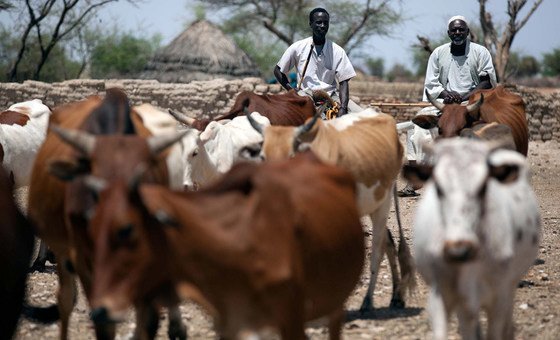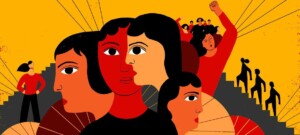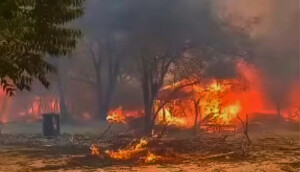Four die in Sudan army operation in Muglad, West Kordofan

Herders guide their cattle to a water point in South Darfur (File photo: Albert González Farran / UNAMID)
Two members of the Sudan Armed Forces (SAF) and two civilians were killed in Muglad, West Kordofan, on Wednesday, after an army unit arrived at the town ‘to maintain security’. Misseriya tribal leaders say they do not need the army to protect the town.
Residents of Muglad reported a cautious calm in the town yesterday to Radio Dabanga, after a gunfight between SAF soldiers and armed civilians on Wednesday, that left four people dead, and seven others injured.
They said that an army unit “consisting of a large number of vehicles arrived from Babanousa on Wednesday morning to maintain security and began confiscating motorcycles* without prior notification”.
When a man violently protested the seizure of his motorcycle near the town market, the dispute developed into a firefight that led to the killing of the unit’s commander, an officer with the rank of major, and a soldier. The soldiers then began to randomly shoot around them, killing two civilians, and wounding seven others.
Muglad and its surroundings form one of the strongholds of the Misseriya Arab cattle herders tribe. Misseriya Emir Hamdi El Doud told Radio Dabanga that they held a meeting in Muglad on Thursday for all leaders of the tribe in the area, to contain the situation after the violent incident in the town.
“The participants discussed the situation and appealed to the residents of the town to keep calm and not ruin their country with their own hands,” he said. “They said that whoever wants to fight should go to Khartoum.
He called on the army “to stay away from residential areas”.
Emir Mukhtar Babu explained that the SAF previously asked the Misseriya native administration** leaders in Muglad for authorisation to enter the town “to implement the order to prevent motorcycles”, but that they refused to comply.
“No official body in the town, including the native administration was notified about the dispatch of a military unit from Babanusa on Wednesday,” he explained.
“I clearly informed the army command in Babanusa that we don’t need army soldiers in Muglad, as we are capable of protecting the town by ourselves,” he said.
In end July, more than 40 people were killed in clashes between the Rapid Support Forces (RSF) and members of the Kababish Arab camel herders tribe in Jabret El Sheikh in North Kordofan.
* Armed bandits in Darfur, mainly originating from Arab herders’ tribes, traditionally used camels and horses as means of transport in the region. Since around 2010, reports about “janjaweed riding on motorcycles” began to appear. The use of these two-seater vehicles grew through the years, leading to repeated decisions by the authorities in Darfur to prohibit motorcycles.
** The Native Administration was instituted by British colonial authorities seeking a pragmatic system of governance that allowed for effective control with limited oversight by the state. The state-appointed tribal leaders were also responsible for executing policies, collecting taxes, and mobilising labour on behalf of the central government. According to the Darfur Bar Association (DBA), the Native Administration during the 30-year rule of dictator Omar Al Bashir did not represent the real community leaders.











 and then
and then